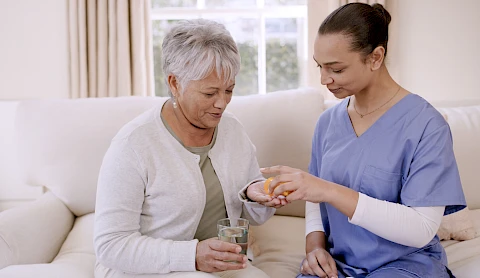
The transition from the hospital to home can be challenging for many seniors. This period is critical, as seniors often need additional support to ensure a smooth and successful recovery. Proper care during this transition is crucial to preventing readmissions and promoting overall well-being. Read on to learn how to ensure your senior family member experiences a successful transition after their hospital stay.
The Importance of Follow-Up Care
Follow-up care is important after your loved one returns home from the hospital. Scheduling and attending follow-up appointments with doctors is the first step in ensuring ongoing health. Continuity of care is crucial, so coordinate with healthcare providers. A consistent treatment plan allows for any necessary adjustments. Monitor your loved one's condition and watch for signs of complications. Early intervention can prevent a return to the hospital, reducing stress for both seniors and their families.
Effective Medication Management
Proper medication management is vital for recently discharged seniors. Start by organizing all medications and reading about each prescription. Knowing what each medication is for and adhering to the prescribed schedule helps prevent complications. Setting up reminders through alarms or a pill organizer can also ensure that seniors take medications correctly. Organize the pills once a week. You can purchase organizers with four-time slots to ensure the timely distribution of the drugs. Don't hesitate to communicate with pharmacists and doctors. Discuss potential side effects or concerns, as medical professionals can provide guidance and alternatives if needed.
Ensuring a Safe Home Environment
Creating a safe home environment is another critical aspect of post-hospital care. Begin with a thorough home safety assessment to identify any hazards that could cause accidents. Consider making modifications to prevent falls, such as installing grab bars in the bathroom or improving lighting in hallways. Assistive devices and technology, like medical alert systems, provide added safety and peace of mind. Making the home a safe space helps seniors regain their independence and confidence, which supports their recovery.
Addressing Emotional and Psychological Needs
Ensure that you address seniors' emotional and psychological needs during this transition. It's common for seniors to experience feelings of depression or anxiety after a hospital stay. Recognize these signs and address them promptly. Encourage social interaction and engagement, whether through visits from family or participating in community activities. Support and reassurance can greatly improve a senior's outlook and overall recovery. Simple acts of kindness and empathy can significantly affect their mental health.
At Senior Helpers Lawrenceville, We Want to Help
Supporting a senior after hospital discharge involves careful attention to their medical, physical, and emotional needs. By focusing on follow-up care, medication management, home safety, and emotional support, families can help their loved ones regain their health and independence.
If you reside in Lawrenceville, Auburn, Flowery Branch, Dacula, or Hoschton and need support caring for your senior loved one, please don't hesitate to contact us at Senior Helpers Lawrenceville. We're here to assist you with our services, such as Personal Care and Chronic Disease Care.